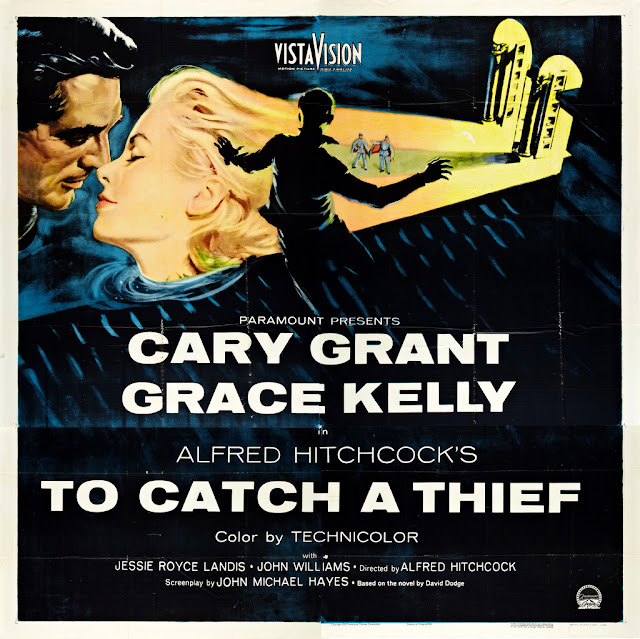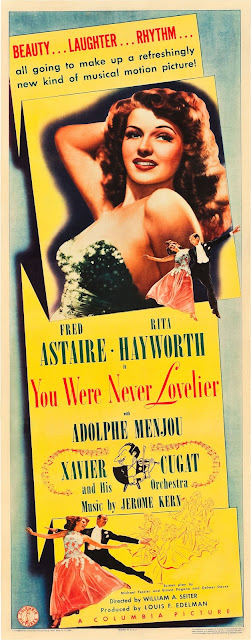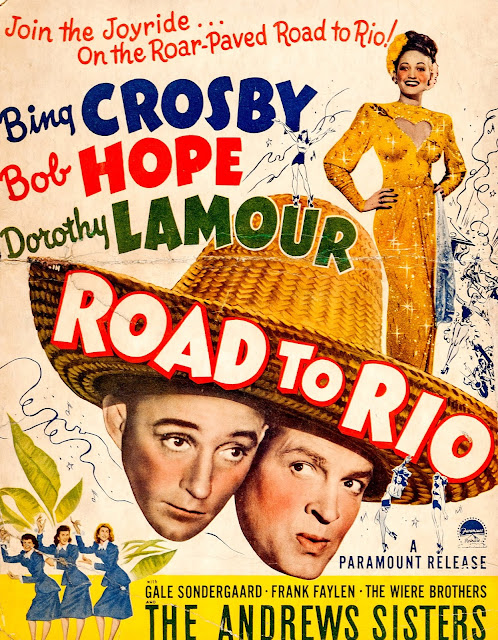An all-too-brief look at To Catch a Thief (1955)
Alfred Hitchcock was a genius. You know why? Because he made To Catch a Thief. Many like to dismiss Thief as one Hitch's lesser efforts, but I think that's only because of the magnitude of his filmography. In context of that, yeah, Thief isn't in the top 5. But if you look at the film objectively, taking Hitch out of the equation, it's a fantastic, entertaining movie. I'm sure some of you think I'm nuts. I can't lie, though, I find Thief to be underrated a lot and it is highly unfair. Any director who was smart enough to put Cary Grant and Grace Kelly in the south of France in Technicolor deserves a medal. Add in the fact that the cinematography is perfection, the music is spot-on, and the screenplay is deliciously witty, and you've got a marvelous way to spend your time.
You could accuse me of being biased towards Thief. It opened a lot of doors for me in the classic film world -- it was my first time seeing anything by Cary Grant, Grace Kelly, and Hitch. The introduction left me dreamy-eyed, ultimately pushing me to further investigate the mystical land of Old Hollywood. If I was Alice, Thief was the White Rabbit, drawing me into Wonderland. So, yeah, I'll basically defend this movie to my dying day.
One thing I have always appreciated about Hitchcock is his approach to love scenes. My family often makes fun of me because of how prudish I can be, but I find that the best sex scenes have no sex. It's all about the power of your imagination, and I can't think of a better example than To Catch a Thief. This film is rightfully known for its double entendres and that not-too-subtle-but-still-great fireworks scene. But what I most enjoy about its attitude towards sex is that Cary Grant isn't the pursuer. The movie's title likely alludes to Grant trying to find the thief imitating his past crimes, but it also applies to Grace Kelly's Francie, a woman who makes it clear that she finds Grant's John Robie very, very attractive.
Watching Francie surprise John with her forthrightness and impure intentions is a complete delight. She's in control, and she loves toying with him like a cat would with a ball of yarn. Every piece of banter and every look is loaded with purpose. The fact that she feels no shame about her desires is the best part, and luckily the film doesn't try to make her out to be some kind of deviant for her behavior. It presents Francie as a strong-minded woman who goes after what she wants; in the end, she succeeds, winning Cary Grant and an incredible home in the French countryside.
P.S. During my first week studying in Paris, I couldn't resist sitting on the floor with one of my host's film books. The sun was hitting the living room just right; I had a cold glass of apple juice in my hand; it seemed perfect. The book was about great screen teams, and suddenly I had Cary and Grace right in front of me. Thousands of miles from Indiana, I felt very much at home. God, I love the movies.
********************************
This is my contribution to the Sex! (Now That I Have Your Attention) Blogathon. Read the other scandalous entries here.
















Lovely critique, and the "sun" photo at the end was the icing on the cake. Thanks so much for contributing to the blogathon!
ReplyDeleteThank you, Steve! I wish I could have done more, but things got crazier than I expected them to. Can't wait to read the other entries!
DeleteWhat a wonderful tribute to a great film. I loved your comments. And I pretty much agree with you on everything you said.
ReplyDeleteThanks, Carol! I hope to do a bigger post on this film someday because I thought it was pitiful how little I wrote, but I'm glad you found it enjoyable regardless. Thanks for stopping by!
Delete